Chileans vote for new president in most divisive elections
People in Chile have headed to the polls for a first round of a divisive presidential election to choose between the right and left sides of the political spectrum, after two years of mass street protests against deep-rooted inequality in the South American county.
Polling stations opened at 8 a.m. (1100 GMT) and will close at 6 p.m. (2100 GMT) on Sunday, with the results expected shortly thereafter.
Voters are set to choose between seven candidates, with 35 year-old Gabriel Boric of the leftist Approve Dignity alliance, and 55-year-old far right candidate Jose Antonio Kast of the Republican Party, being the favorites. Both are from minority parties not represented in the government.
Kast has promised to crack down on crime and curb illegal immigration, while Boric has pledged to scrap the nation's laissez-faire economic model and strengthen environmental protections and indigenous rights.
Chile's outgoing President Sebastian Pinera was the first public figure to cast his ballot, at a school in Las Condes, one of the most costly areas in Santiago.
"All opinions matter. Come and vote," he said. "We are capable of resolving our differences in a peaceful way, by voting."
The election marks the most wide open contest since the country's 1990 return to democracy, and may well oppose Chile's traditional political cycle. It also follows elections in May for a body that will write the new constitution -- a key demand of the protesters.
"I'm going to vote but I am pretty disappointed," said Danilo Panes, who took part in 2019 protests, adding none of the candidates have put forward "alternatives in line with what the people demanded" when they took to the streets.
The 2019 protests left more than 30 people dead and a trail of destruction around Santiago.
They triggered a social shift and led to the formation of a representative assembly to redraft the country's constitution.
"It can be argued that these are the last elections of the old cycle, since they may end with a different result to the ones that came before," said Raul Elgueta, political scientist at University of Santiago.
"My perception is that the principal demands (of the voters) are the same demands as those of the demonstrations," Gaspar Dominguez, another protester told Reuters. "Rights that have to do with social rights, healthcare, education and housing."
To win in the first round, a candidate must garner 50 percent of votes cast, but analysts believe the election will likely go to a runoff round between the top two contenders on December 19.
Also competing are Christian Democrat senator Yasna Provoste, the only candidate who has served in the center-left coalition that ruled for 20 years after the dictatorship; far-left professor Eduardo Artes; and filmmaker and progressive politician Marco Enriquez-Ominami.
Centrists, including the candidate from Pinera's party, have proved the least popular in opinion polls that also revealed half of the 15 million eligible voters to be undecided.
VIDEO | Press TV's news headlines
Journalist Tucker Carlson says he was detained in occupied territories after interview with US amb.
VIDEO | Is there any hope for Russia-Germany relations?
VIDEO | Israeli land grab policies
Nuclear chief: Israeli infiltration, sabotage drove Iran towards nuclear self-sufficiency
IRGC intel. chief: Enemies devised 7-stage plot for recent riots
Israeli minister calls to 'encourage' Palestinian exodus
VIDEO | Press TV's news headlines


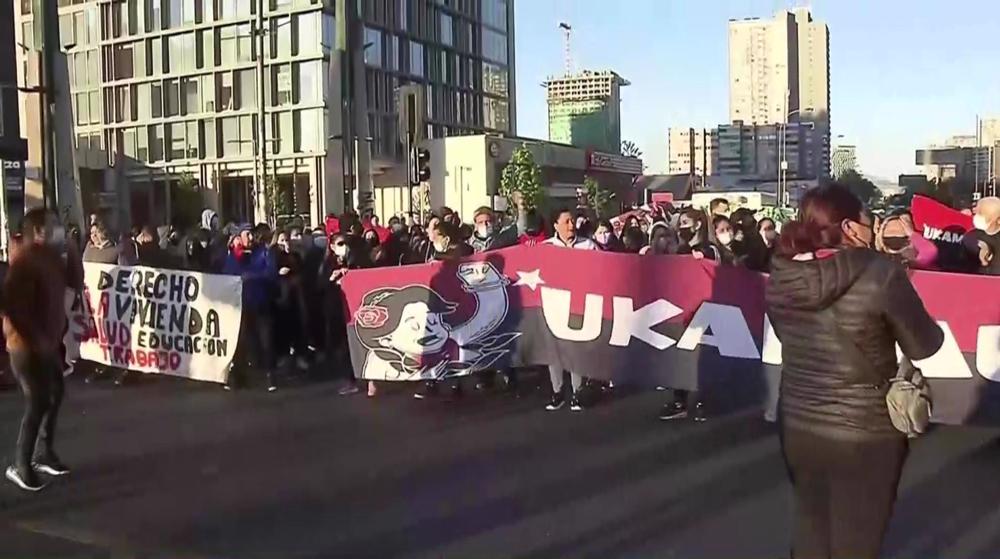
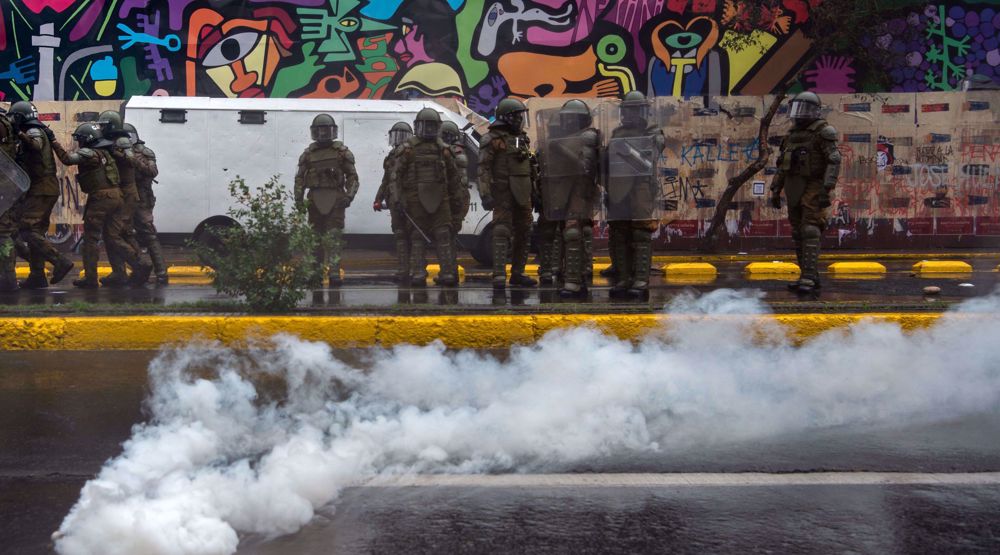

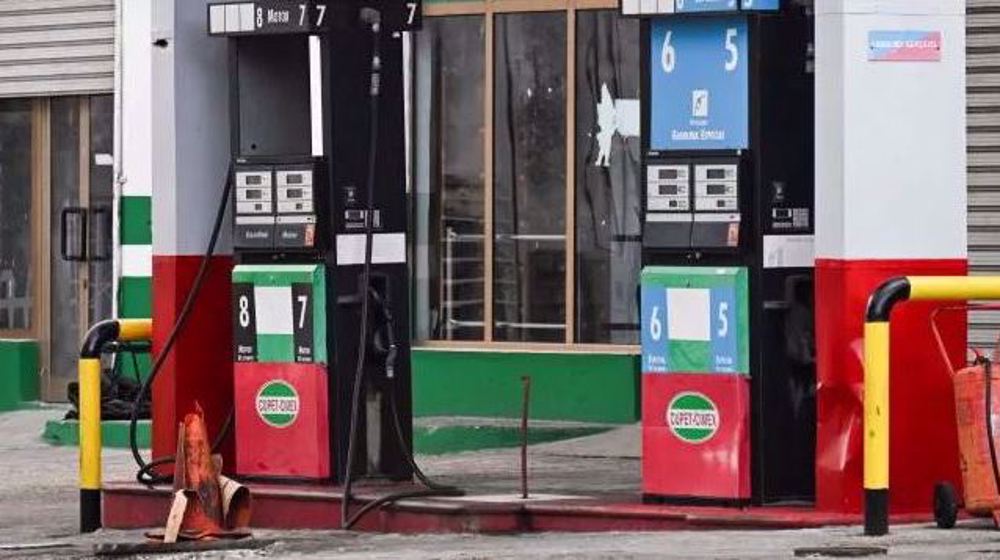
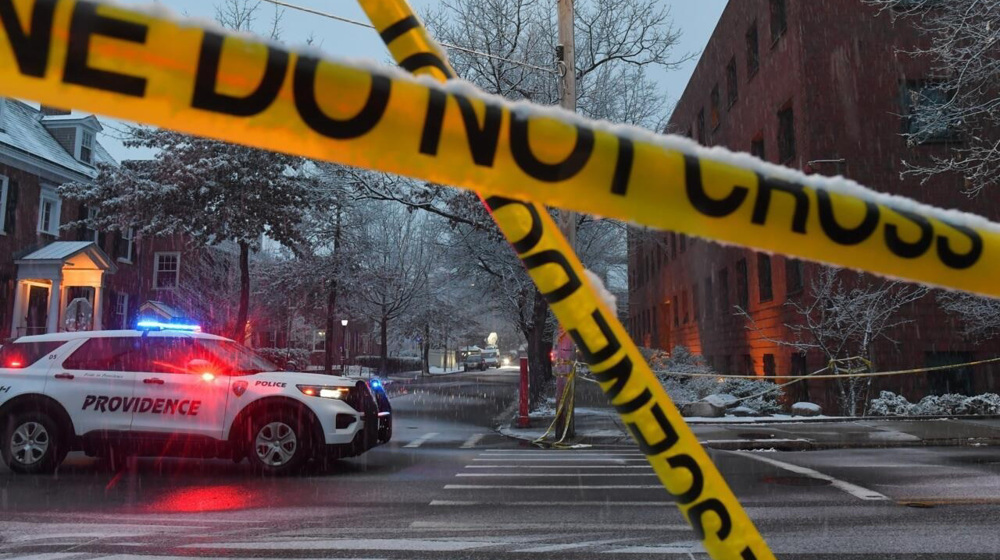



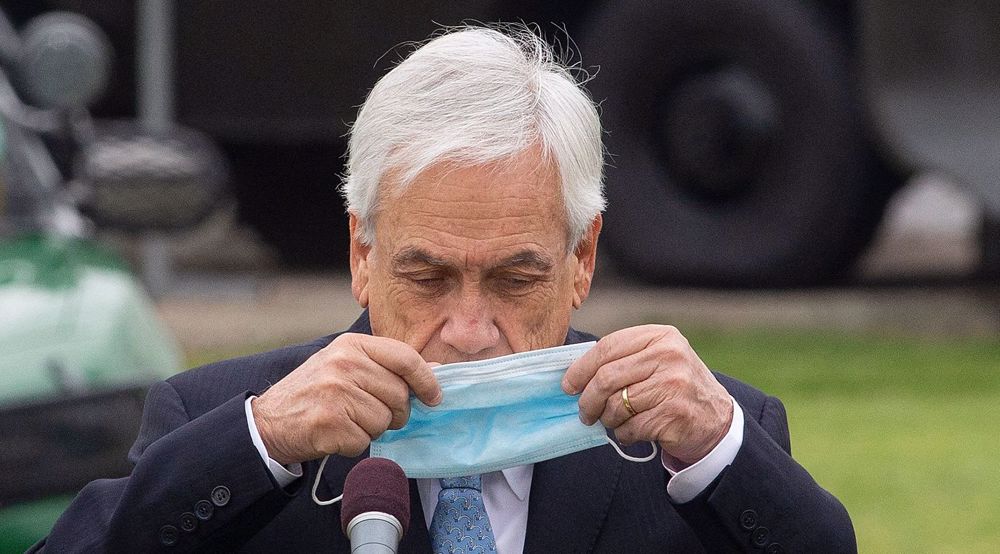
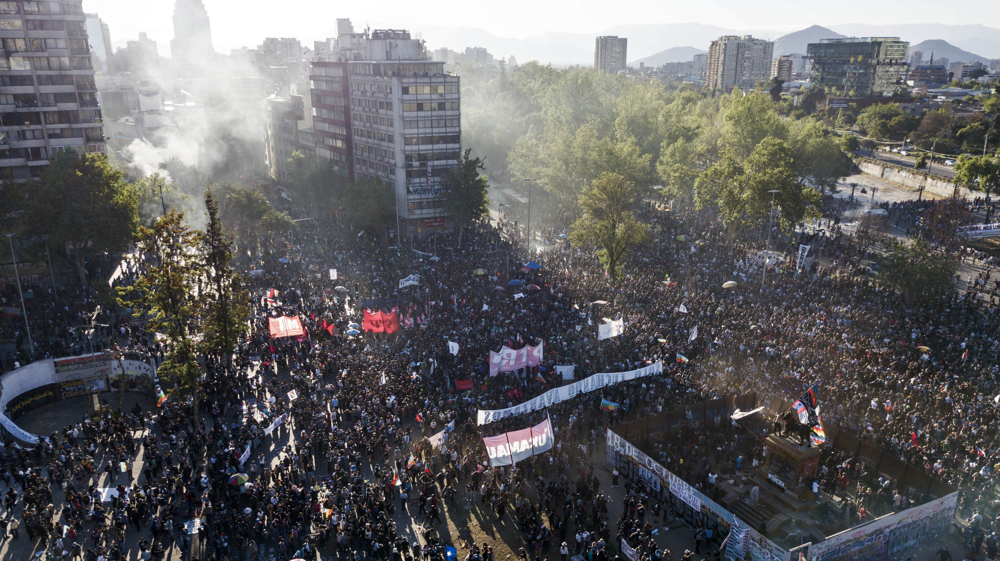
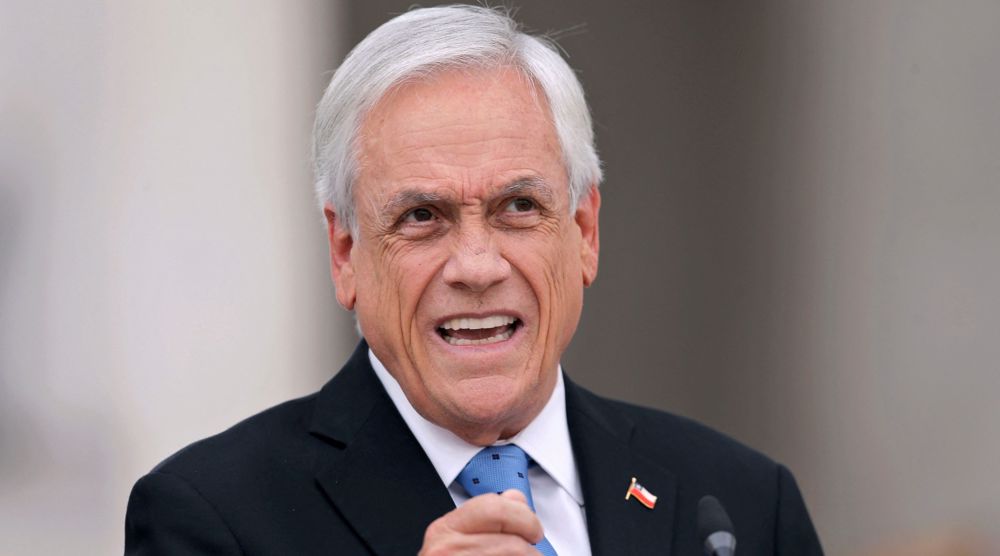

 This makes it easy to access the Press TV website
This makes it easy to access the Press TV website